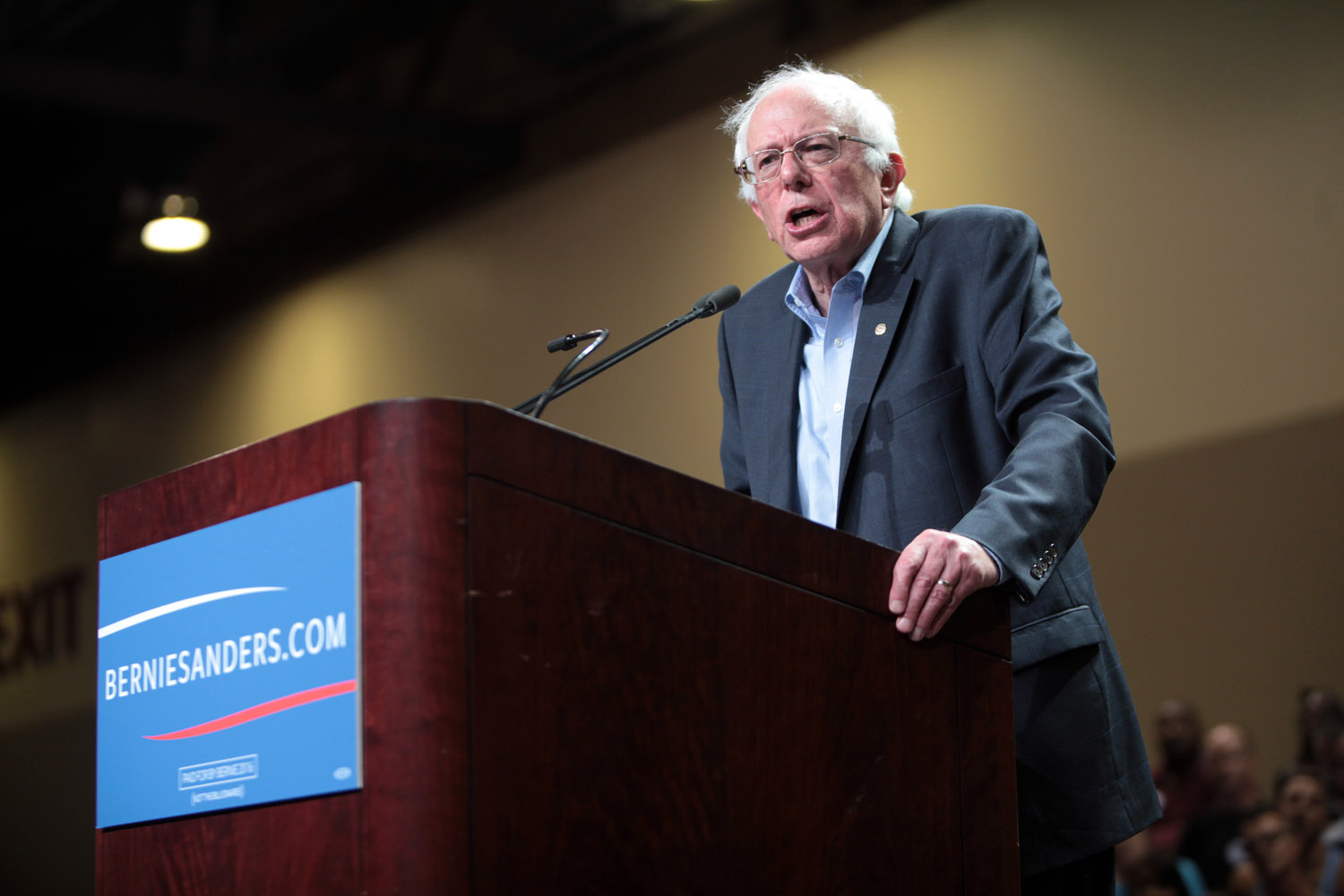Bernie Sanders was never supposed to make it this far into the election cycle. Sanders’ ideas were presumed to be too radical, his campaign was labeled “fringe,” and there was supposed to be no reality where Sanders could challenge Hillary Clinton. Despite a long career in the public sphere, from participating in the Civil Rights Movement to being the ranking member on the Senate Budget Committee, Sanders was not a household name.
After all, how could a self-described Democratic socialist ever make a serious presidential bid? It seemed preposterous. Yet, here we are.
Sanders is effectively tapping into a message of economic populism and has become the natural evolution of the 2011 Occupy Wall Street movement. Sanders has forced the nation to pay attention to him. However, Sanders’ stardom is not everything it’s made out to be.
Instead, there’s an underlying numbers problem beneath Bernie’s bluster. Sanders’ common retort to electability questions is to say that his candidacy will usher in record voter turnout. Sanders says, by way of the people, he’ll prompt a political revolution and will radically change the way Washington D.C. works. Here’s a reality check. There’s no conclusive evidence to show that will happen.
In 2008, then-Senator Barack Obama conducted a political uprising that Americans hadn’t seen since President Ronald Reagan’s election in 1980. Obama swept the nation with an idealistic fervor and set record voter turnout across the country. Sanders’ campaign is hinged upon a similar result, yet approximately 73,000 less voters have participated in the first three primaries as compared to 2008.
On “Meet the Press,” Sanders admitted that voter turnout in the Nevada caucuses was “not as high as I wanted.” In saying that, however, Sanders is admitting that his main mechanism for change is failing. By his own logic, he cannot accomplish any of his proposals without a political revolution.
Let’s also dabble in Sanders’ proposed reality where hundreds of thousands – if not millions – of disenfranchised voters are brought into the system,and a political upheaval actually occurs. I genuinely hope that can happen, but I’m skeptical that will change things. Again, Obama accomplished what Sanders is hoping for, yet the political divide expanded over the course of Obama’s presidency. The instruments for institutional gridlock, such as gerrymandering, will still largely be in place.
This coincides with a pragmatic argument against a Sanders presidency. Getting bills passed through Congress is a numbers game, and Sanders will never have the numbers. A bill requires 218 votes in the House of Representatives and 51 votes in the Senate to pass. Currently, the Democrats are the minority in both houses of Congress and would need to net 30 seats in the House of
Representatives and five seats in the Senate to regain the majority of both.
The Democrats have a chance of regaining their majority in the Senate, but it will be nearly impossible to regain their majority in the House. Simply, there aren’t enough races in the House for the Democrats to net the required amount of seats for a majority. Even with a political revolution, Sanders will never have 218 votes in the House to even allow his proposals to see the light of day in the Senate.
In turn, at the same time, there’s no incentive for Republicans to work with Sanders were he to win the presidency. No Republican will ever vote for universal health care, free college, progressive taxes or breaking up the bigger banks. A Republican vote for any Sanders proposal would kill any chance of his re-election in 2020. Similar to their Republican colleagues, Democrat House representatives residing in red states will not be all that eager to align themselves with Sanders. This argument also applies to Hillary Clinton, but Sanders has less of a chance to get every single Democrat to rally behind his ideas.
Even still, I’ve gotten this far without mentioning what might be one of Sanders’ biggest weaknesses: foreign policy. Sanders has no foreign policy experience and struggles every time international affairs are brought up during debates. However, his only argument seems to be: “I didn’t vote for the Iraq War.” That is a fine point to make, but it is not a foreign policy in and of itself.
On Sanders’ issue page on his website, there are 18 other issues listed until you finally reach one regarding foreign policy. No one can become an expert on international affairs solely by casting votes in the Senate, and perhaps that is why Obama has never been able to craft a consistent and effective foreign policy doctrine.
In a sense, Sanders has already won. Income inequality is now accepted by most as a fact and something that needs to be changed, while four years ago, bringing the subject up was said to be a tool for warfare among the classes. In turn, Sanders is giving a fight that Clinton could have never predicted. Sanders bucked conventional wisdom and is running one of the best campaigns in recent history.
Overall, I find myself agreeing with the majority of Sanders’ proposals, but I can’t picture a scenario where they become reality. At the same time, he’s authentic and blunt — and that’s a widely welcomed addition to the current political environment.




